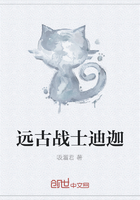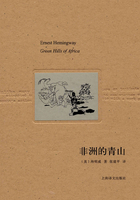No; if one would seek to see true companions of Socrates, one must look to Crito, and Chaerephon, and Chaerecrates, to Hermogenes, to Simmias and Cebes, to Phaedondes and others, who clung to him not to excel in the rhetoric of the Assembly or the law-courts, but with the nobler ambition of attaining to such beauty and goodliness of soul as would enable them to discharge the various duties of life to house and family, to relatives and friends, to fellow-citizens, and to the state at large. Of these true followers not one in youth or old age was ever guilty, or thought guilty, of committing any evil deed.
For these true followers, familiar to us in the pages of Plato, ("Crito," "Apol.," "Phaedo," etc) see Cobet, "Pros. Xen.""But for all that," the accuser insists, "Socrates taught sons to pour contumely upon their fathers by persuading his young friends that he could make them wiser than their sires, or by pointing out that the law allowed a son to sue his father for aberration of mind, and to imprison him, which legal ordinance he put in evidence to prove that it might be well for the wiser to imprison the more ignorant." See "Apol." 20; Arist. "Clouds," 1407, where Pheidippides "dragshis father Strepsiades through the mire."Now what Socrates held was, that if a man may with justice incarcerate another for no better cause than a form of folly or ignorance, this same person could not justly complain if he in his turn were kept in bonds by his superiors in knowledge; and to come to the bottom of such questions, to discover the difference between madness and ignorance was a problem which he was perpetually working at. His opinion came to this: If a madman may, as a matter of expediency to himself and his friends, be kept in prison, surely, as a matter of justice, the man who knows not what he ought to know should be content to sit at the feet of those who know, and be taught.
But it was the rest of their kith and kin, not fathers only (according to the accuser), whom Socrates dishonoured in the eyes of his circle of followers, when he said that "the sick man or the litigant does not derive assistance from his relatives, but from his doctor in the one case, and his legal adviser in the other." "Listen further to his language about friends," says the accuser: "'What is the good of their being kindly disposed, unless they can be of some practical use to you? Mere goodness of disposition is nothing; those only are worthy of honour who combine with the knowledge of what is right the faculty of expounding it;' and so by bringing the young to look upon himself as a superlatively wise person gifted with an extraordinary capacity for making others wise also, he so worked on the dispositions of those who consorted with him that in their esteem the rest of the world counted for nothing by comparison with Socrates." See Grote, "H. G." v. 535.
Cf. Thuc. ii. 60. Pericles says, "Yet I with whom you are so angry venture to say of myself, that I am as capable as any one of devising and explaining a sound policy."--Jowett.
Now I admit the language about fathers and the rest of a man's relations. I can go further, and add some other sayings of his, that "when the soul (which is alone the indwelling centre of intelligence) is gone out of a man, be he our nearest and dearest friend, we carry the body forth andbury it out of sight." "Even in life," he used to say, "each of us is ready to part with any portion of his best possession--to wit, his own body--if it be useless and unprofitable. He will remove it himself, or suffer another to do so in his stead. Thus men cut off their own nails, hair, or corns; they allow surgeons to cut and cauterise them, not without pains and aches, and are so grateful to the doctor for his services that they further give him a fee. Or again, a man ejects the spittle from his mouth as far as possible. Why? Because it is of no use while it stays within the system, but is detrimental rather." See Aristot. "Eth. Eud." vii. 1.
Now by these instances his object was not to inculcate the duty of burying one's father alive or of cutting oneself to bits, but to show that lack of intelligence means lack of worth; and so he called upon his hearers to be as sensible and useful as they could be, so that, be it father or brother or any one else whose esteem he would deserve, a man should not hug himself in careless self-interest, trusting to mere relationship, but strive to be useful to those whose esteem he coveted.















